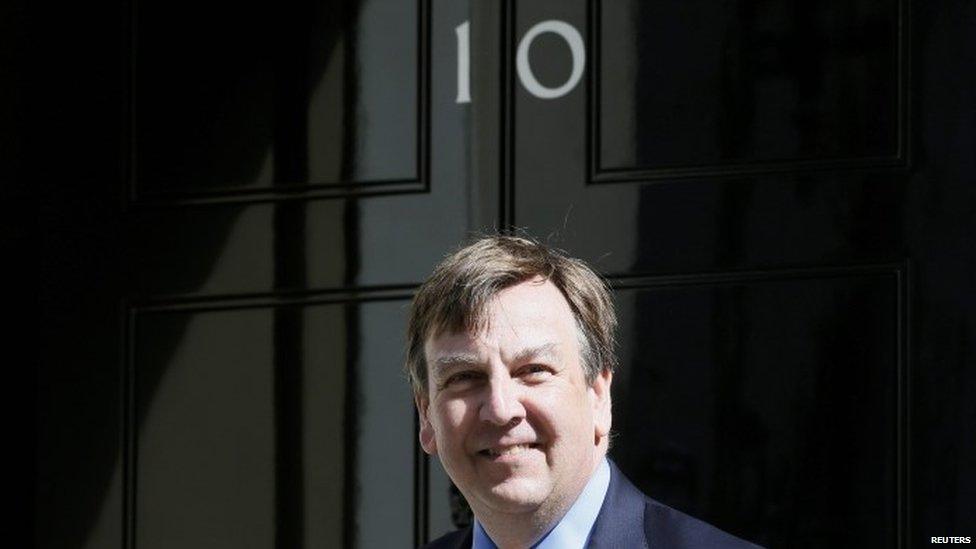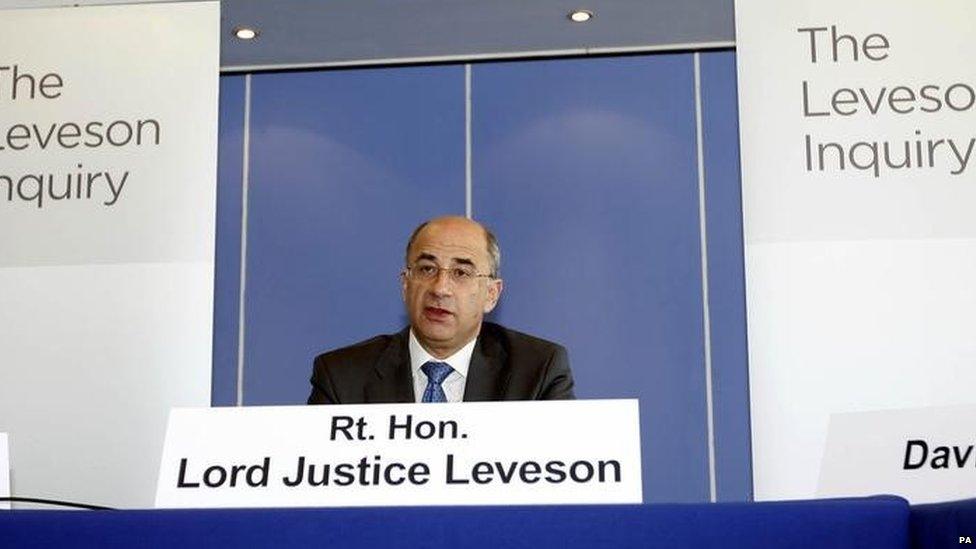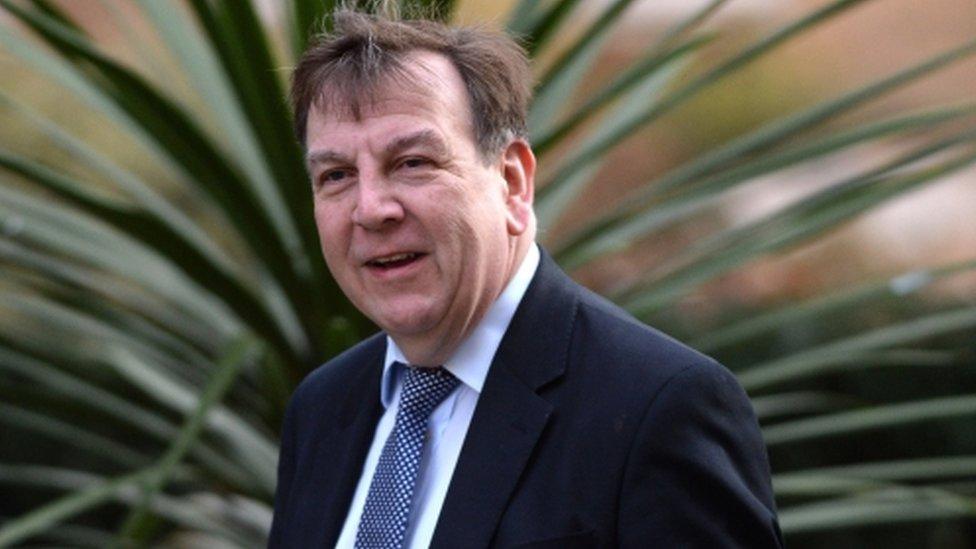John Whittingdale and the press
- Published

In his role, Mr Whittingdale is responsible for press regulation
How have we found ourselves in this strange situation where privacy campaigners who have pushed for tighter rules are up in arms because the private life of a single cabinet minister was not reported?
If you're scratching your head lets let's start briefly with what has actually happened.
Between August 2013 and February 2014, when he was chair of the powerful Commons culture and media committee, the Conservative John Whittingdale had a relationship with a woman whom he met online on the dating site match.com. He found out that she was a sex worker only when a reporter contacted him with that information, and as soon as he was aware he ended the relationship.
More than a year later he is promoted to be the culture secretary - taking responsibility for press regulation. Crucially he did not tell Downing Street that some of the newspapers had this story about his private life, which Labour's Chris Bryant has described as a "sword of Damocles" hanging over his head.
The political question is whether or not, therefore, he knowingly entered into an insufferable conflict of interest - and whether his decisions on the press were influenced by his own situation. He absolutely denies that. Of course Number 10 isn't exactly delighted about it all but it says he is a single man who had a relationship, move on.
Why does it matter now?

The government has yet to say whether the second phase of the Leveson process will go ahead
There is unfinished business from the Leveson Inquiry into the hacking scandal. The second part of the inquiry looking into ties between the papers and the police hasn't yet taken place. It was put on hold while the legal processes were completed, but there's scepticism around Westminster over whether it will ever take place.
In March, Mr Whittingdale said there wouldn't be a decision until all the criminal proceedings finished and the government has repeated that now.
But there's a suggestion too, put forward by privacy campaigners, that the government has gone soft on the real tightening of the rules on the press. At the end of last year Mr Whittingdale announced that papers could be protected from punitive damages in some cases.
And the recommendation of the Leveson Inquiry that papers be regulated under a Royal Charter hasn't happened, with papers forming their own regulatory body instead.
The newspapers would say things have changed since Leveson in any case, and it's nonsense to suggest it's back to business as usual pre-hacking.
But with this information about John Whittingdale now out in the public domain, Labour is suggesting that he cannot possibly be in charge of press regulation and should step aside from this part of his job - because he is vulnerable to pressure from the press.
There is no sense right now this will happen. Sources in government suggest it would be ludicrous to think he should be held responsible for the fact that newspapers decided not to publish a story about his private life. And it's also important to note that John Whittingdale as a political character would always have been likely to go for light-touch regulation in any case.
It's also highly likely that there will be a reshuffle in the aftermath of the EU referendum, if the political calculation turns out to be that Mr Whittingdale should be moved.
But this is certainly the kind of headache that the government could do without, and it's the kind of story, involving politicians, the papers, and sex, that could well take an unpredictable turn.
- Published13 April 2016
